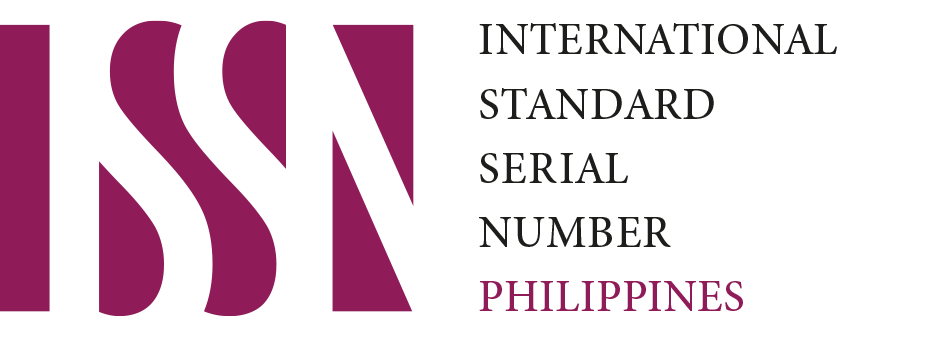TRASH (Transformation and Resilience towards Advancing Sustainable Habits) Project: A Waste Management Classroom Innovation for Young Eco-Champions
Keywords:
Action research, qualitative study, thematic analysis, waste disposal habits, waste managementAbstract
This study examined the impact of the TRASH Project, a classroom-based innovation designed to promote proper waste management habits among Grade 2 learners. Qualitative data were collected from teachers, parents, and students involved in the program. Thematic analysis revealed positive outcomes across all participant groups. Teachers observed a significant reduction in classroom waste and the development of proper waste disposal habits among students. Parents reported that these habits extended to the home environment, demonstrating the program's ability to foster long-term behavioral change. Students expressed a newfound sense of environmental responsibility and appreciation for the program, indicating the potential for cultivating a love for the environment. Through achieving its core objectives of promoting waste management habits, environmental awareness, and reduced classroom litter, the TRASH Project demonstrates promise in fostering responsible waste management practices in young learners. While the qualitative data provides valuable insights, future research will incorporate quantitative methods for a more comprehensive evaluation. The project's scope will be expanded to encompass the entire school, and its content will be further refined based on the findings. Additionally, new waste management innovations will be developed, and future evaluations will employ both quantitative and qualitative assessments to ensure program improvement and generalizability.
Downloads
References
Aguirre, M. L. C. (2019). Environmental Awareness and Education: A Key Approach to Solid Waste Management. IASPER Interdisciplinary Research Journal, 10, 1-11.
Aquino, A., Deriquito J.A., & Festejo, M. (2013). Ecological Solid Waste Management Act: Environmental Protection Through Proper Solid Waste Practices. https://ap.fftc.org.tw/article/588
Chawla, L., & Cushing, D. F. (2007). Education for strategic environmental behavior. Environmental Education Research, 13(4), 437–452. https://doi.org/10.1080/13504620701581539
Damerell, P., Howe, C., & Milner-Gulland, E. J. (2013). Child-orientated environmental education influences adult knowledge and household behaviour. Environmental Research Letters, 8(1), 015016. https://doi.org/10.1088/1748-9326/8/1/015016
Debrah, J. K., Vidal, D. G., & Dinis, M. a. P. (2021). Raising Awareness on Solid Waste Management through Formal Education for Sustainability: A Developing Countries Evidence Review. Recycling, 6(1), 6. https://doi.org/10.3390/recycling6010006
Fazey, I., Schäpke, N., Caniglia, G., Patterson, J., Hultman, J., Van Mierlo, B., Säwe, F., Wiek, A., Wittmayer, J., Aldunce, P., Waer, H. A., Battacharya, N., Bradbury, H., Carmen, E., Colvin, J., Cvitanovic, C., D’Souza, M., Gopel, M., Goldstein, B., . . . Wyborn, C. (2018). Ten essentials for action-oriented and second order energy transitions, transformations and climate change research. Energy Research & Social Science, 40, 54–70. https://doi.org/10.1016/j.erss.2017.11.026
Hoang, T. T. P., & Kato, T. (2016). Measuring the effect of environmental education for sustainable development at elementary schools: A case study in Da Nang city, Vietnam. Sustainable Environment Research, 26(6), 274–286. https://doi.org/10.1016/j.serj.2016.08.005
Janmaimool, P., & Khajohnmanee, S. (2019). Roles of environmental system knowledge in promoting university students’ environmental attitudes and Pro-Environmental behaviors. Sustainability, 11(16), 4270. https://doi.org/10.3390/su11164270
Jensen, B. B., & Schnack, K. (1997b). The Action Competence approach in environmental education. Environmental Education Research, 3(2), 163–178. https://doi.org/10.1080/1350462970030205
Kollmuss, A., & Agyeman, J. (2002). Mind the Gap: Why do people act environmentally and what are the barriers to pro-environmental behavior? Environmental Education Research, 8(3), 239–260. https://doi.org/10.1080/13504620220145401
Paghasian, M. C. (2017). Awareness and Practices on Solid Waste Management among College Students in Mindanao State University Maigo School of Arts and Trades. Proceedings of the 3rd International Conference on Education and Training (ICET 2017), 128, 5-12. https://doi.org/10.2991/icet-17.2017.2
Princy, A. J. (2024, July 31). Global Waste Management: Towards a world of no waste. Research Dive. https://www.researchdive.com/blog/global-waste-management-towards-a-world-of-no-waste
Senge, P.M. (2006) The Fifth Discipline: The Art and Practice of the Learning Organization. Doubleday (A Division of Random House), New York, 7.
Global Waste Management Outlook. (2015). UNEP - UN Environment Programme. https://www.unep.org/resources/report/global-waste-management-outlook
World Bank Group. (2022). Solid waste management. In World Bank. https://www.worldbank.org/en/topic/urbandevelopment/brief/solid-waste-management
Downloads
Published
Issue
Section
License
Copyright (c) 2024 Balangkas: An International Multidisciplinary Research Journal

This work is licensed under a Creative Commons Attribution-NonCommercial 4.0 International License.
Authors retain copyright to their work. However, by submitting to Balangkas, authors grant the journal the right to publish their article under the Creative Commons Attribution–NonCommercial 4.0 International License (CC BY-NC 4.0).









